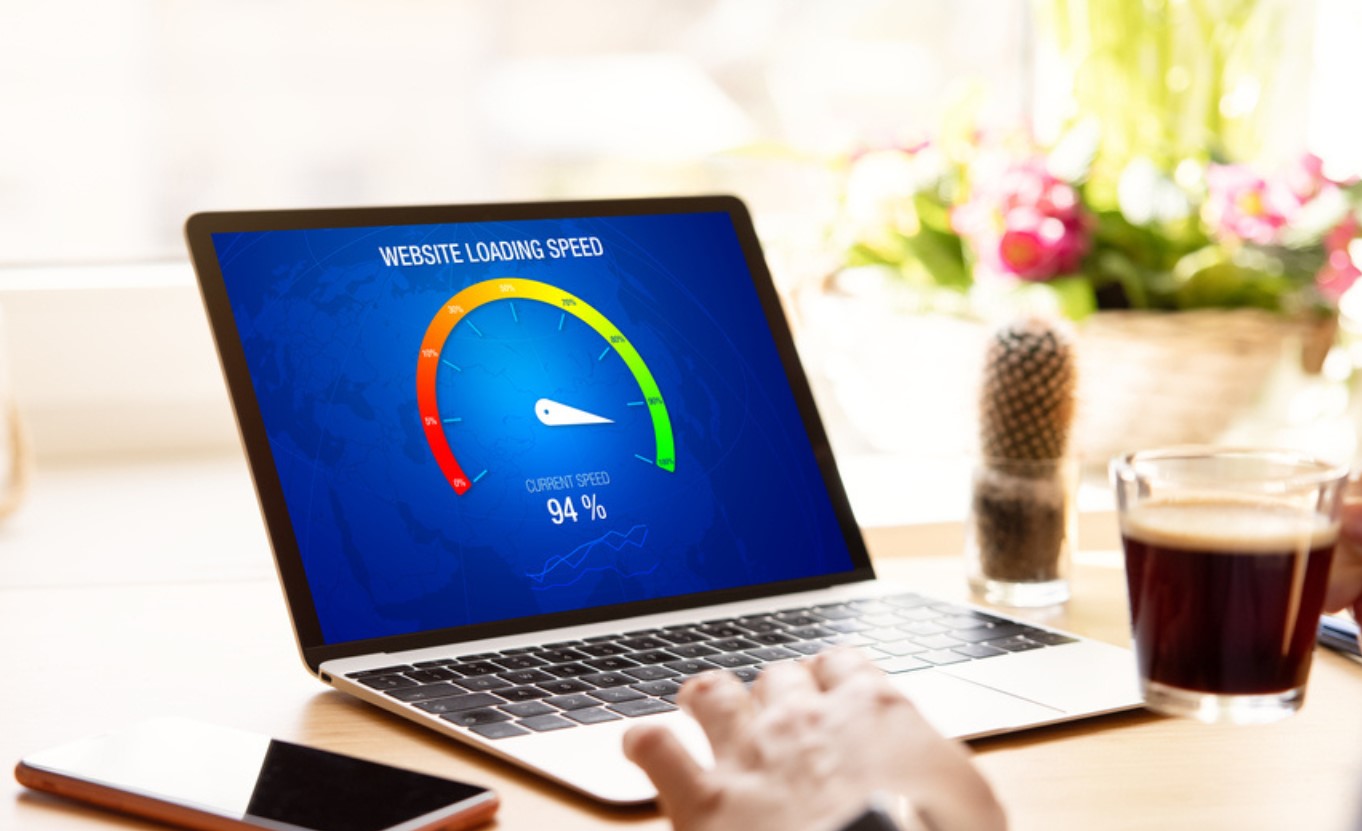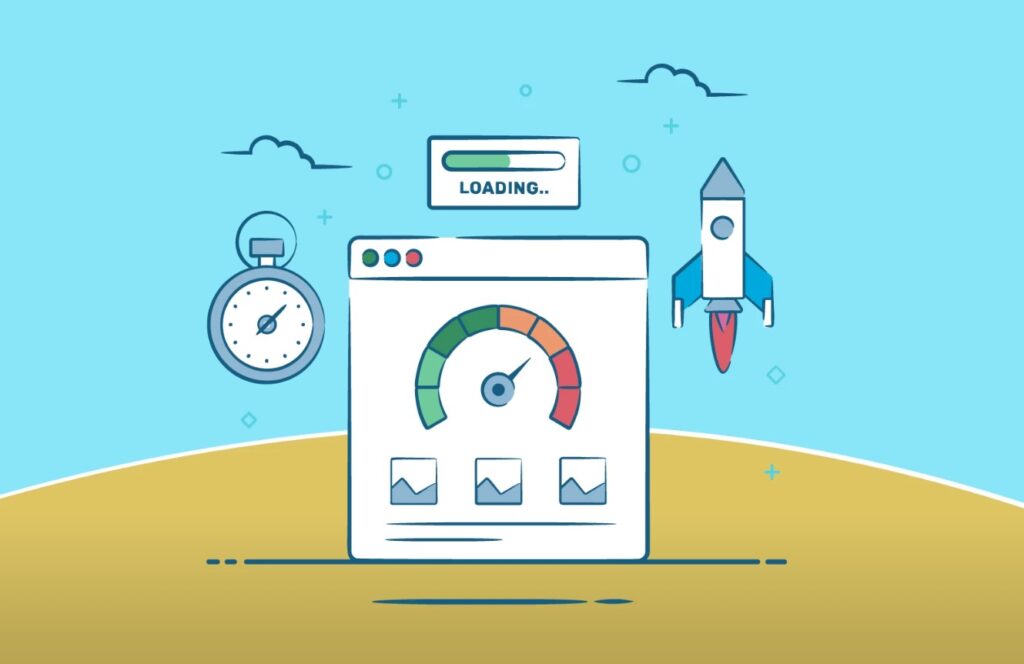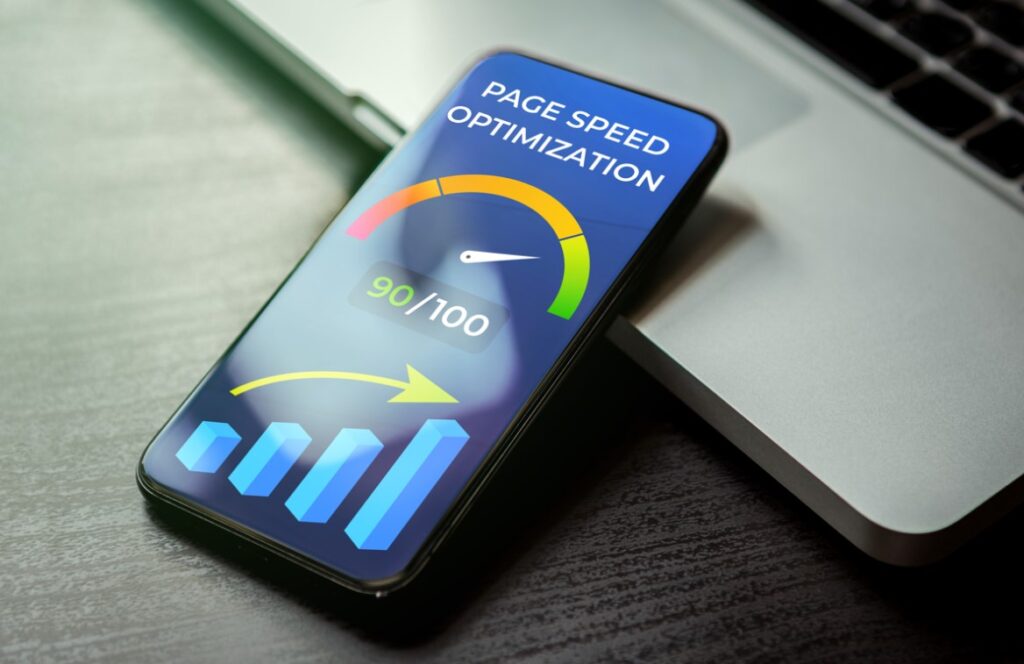
In the digital age, where information is just a click away, users expect websites to load quickly and seamlessly. Slow-loading websites not only frustrate visitors but also have a significant impact on search engine rankings. In this article, we will explore the critical relationship between website speed and SEO.
We’ll delve into the importance of a fast-loading website, how speed affects user experience, its impact on search engine rankings, and practical steps to optimize your website’s speed.
Table of Contents
Significance of a Fast-Loading Website
Picture this: you’re searching for information, and you click on a promising link. But instead of instantly getting the content you need, you’re greeted with a loading spinner that seems to take forever. Frustrating, isn’t it?
This scenario is all too familiar, and it’s one that website users encounter daily. A fast-loading website is not just a nice-to-have; it’s a necessity. It’s crucial for retaining visitors, providing a positive user experience, and ultimately, for SEO success.
Users are more likely to engage with and convert on websites that load quickly, making website speed an integral part of your overall digital strategy.
How Website Speed Affects User Experience

Source: brilliantwebdesign.co.uk
User experience (UX) is a critical factor in the success of any website. Website speed plays a pivotal role in shaping user experience. When a website loads slowly, users are more likely to abandon it in frustration.
Slow-loading pages disrupt the flow of information and hinder users from accessing the content they seek. This not only leads to high bounce rates but also affects the overall perception of your brand or website.
A poor user experience can result in lost opportunities, whether it’s for sales, conversions, or simply sharing valuable content.
Impact of Slow Website on Search Engine Rankings
Search engines, particularly Google, prioritize user experience and satisfaction. To provide the best results, search engines consider website speed as a ranking factor. Slow-loading websites are penalized in search engine rankings, making it harder for users to discover them.
This ranking penalty can have a significant impact on organic search traffic and visibility. To maintain a strong presence in search results, it’s imperative to prioritize website speed as an integral component of your SEO strategy.
The Correlation Between Page Load Time and Bounce Rate
Page load time and bounce rate share an intimate relationship. Bounce rate refers to the percentage of visitors who navigate away from a website after viewing only one page.
Slow-loading websites often experience higher bounce rates because users are less likely to stay and explore when confronted with sluggish performance.
When visitors bounce off a page quickly, it signals to search engines that the content may not be relevant or engaging. Consequently, high bounce rates can negatively impact your SEO efforts and rankings.
Mobile Optimization and Its Relation to Website Speed

Source: dribbble.com
Mobile optimization has become increasingly important in the era of smartphones and mobile browsing. Many users access websites through mobile devices, and they expect the same level of speed and responsiveness as they would on desktop computers.
Slow-loading websites on mobile devices not only frustrate users but also result in lower search rankings. Google, in particular, uses mobile-first indexing, meaning it primarily uses the mobile version of a website for ranking and indexing.
Therefore, mobile optimization and fast website speed go hand in hand to ensure a seamless user experience across all devices.
6 Factors That Contribute to a Slow Website
Understanding the factors that contribute to a slow website is essential for diagnosing and addressing speed issues. Several elements can impact website speed, including:
- Large Media Files: High-resolution images and videos can significantly slow down page load times. Compressing and optimizing media files is crucial for faster loading.
- Unoptimized Code: Bloated or unoptimized code can increase the time it takes for a website to render. Cleaning up and streamlining code can lead to speed improvements.
- Inadequate Hosting: Choosing the right hosting provider and plan is crucial. Shared hosting or outdated servers can lead to slow performance. So, if you use Magento for your website, you should pick a High Performance Magento Hosting to avoid having issues on your website.
- Too Many HTTP Requests: Each element on a web page (images, scripts, stylesheets) requires an HTTP request. Excessive requests can lead to delays.
- Lack of Browser Caching: Browser caching allows elements of a web page to be stored on a user’s device, reducing the need for re-downloading when revisiting the site.
- No Content Delivery Network (CDN): CDNs distribute website content across multiple servers worldwide, reducing the physical distance between users and servers, resulting in faster loading times.
Best Practices to Optimize Website Speed

Source: shopify.com
Optimizing website speed requires a combination of technical adjustments and best practices. Here are some key steps to enhance your website’s speed:
- Optimize Images: Compress and resize images to reduce their file size while maintaining quality.
- Minimize HTTP Requests: Combine and minimize scripts and stylesheets to reduce the number of HTTP requests.
- Enable Browser Caching: Set up browser caching to store static assets on users’ devices for faster loading upon return visits.
- Upgrade Hosting: Consider upgrading to a faster hosting plan or switching to a hosting provider optimized for speed.
- Implement a CDN: Use a content delivery network to distribute your website’s content to servers around the world for faster delivery to users.
- Reduce Redirects: Minimize unnecessary redirects, as each one adds time to page loading.
- Optimize Code: Streamline your website’s code, eliminate unnecessary elements, and leverage browser caching techniques.
Leverage Marketing Experts to Boost Your Site Speed

Source: professional.dce.harvard.edu
In a digital landscape where speed and user experience are paramount, a slow website can hinder your SEO efforts and drive away potential visitors. Prioritizing website speed optimization is not just a best practice, but a necessity for maintaining and improving your search engine rankings.
By partnering with a digital marketing agency that specializes in website speed optimization, you can ensure that your website not only ranks well but also provides an exceptional user experience, ultimately driving success in the competitive online world.







